Forest culture
CULTURES SKILLS
- Axes - Long
- Axes - Short
- Climbing
- Detect Traps
- Direction Sense
- Driving
- Fletching
- Foraging
- Hunting
- Leatherworking
- Loading
- Man. in Fur
- Man. in S. Leather
- Rappelling
- Read Tracks
- Rope Mastery
- Set Traps
- Stalk & Hide
- Tracking
- Trap Building
- Weather-Watching
- Wood Lore
- Wood-Crafts
- Woodworking
Legend
“Walders have long guarded the secrets of the ancient woods, their lives intertwined with the whispers of the forest and its ageless guardians.”
Description
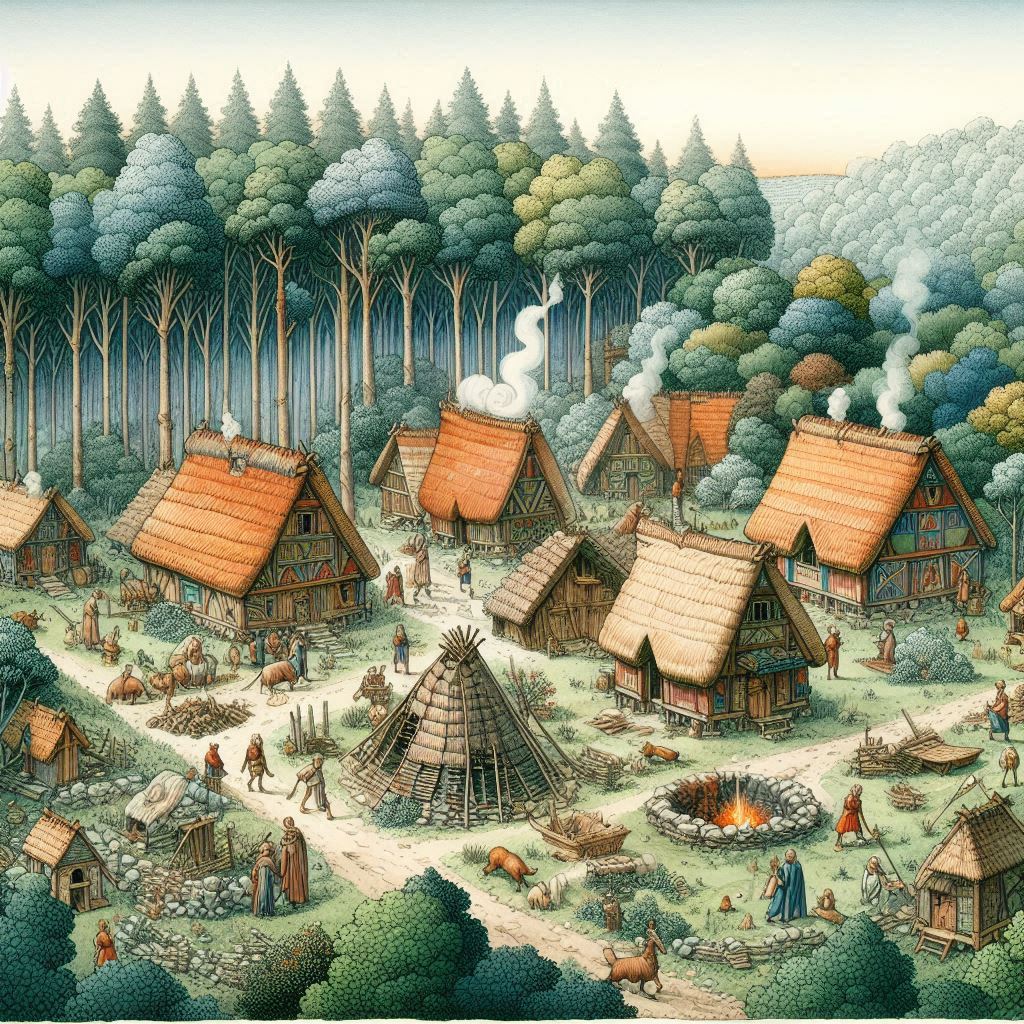
The forest dwellers, or Walders, are a secluded people deeply connected to the woodland realms they inhabit. Primarily hunters, gatherers, and druids, they have lived among the trees for generations forming tight-knit, self-sufficient communities. It’s rare for a child of the forest to venture to urban areas, as they prefer the familiarity and sanctity of their natural surroundings. Many Walders are believed to commune with nature spirits, further deepening their bond with the forest.
Despite their independence, overarching tribal identities or alliances exist among different bands or clans. These affiliations are often based on shared forest regions, totems, or ancestral stories. Walders are skilled hunters, gatherers, and herbalists, and their folklore is rich with tales of the forest, its creatures, and their own origins. These stories explain the properties of certain plants and the origins of their unique abilities.
Lifestyle: Walders live in harmony with nature, relying on the forest’s resources for sustenance and shelter. Their tracking, climbing, hiding, hunting, and foraging techniques are unparalleled. They often form bonds with forest animals, either as companions, totems, or through the ability to communicate with certain creatures.
Diet: Forest-dwellers eat a diverse diet of wild game, berries, nuts, mushrooms, and root vegetables. They may also cultivate small gardens with crops suited to the forest environment, such as tubers and leafy greens. Their diet is rich in plant-based nutrients and seasonal, changing with the availability of different foods throughout the year.
Traditions and Stories: Coming-of-age ceremonies involve tests of survival and skill, such as facing dangerous forest creatures or enduring periods alone in the wild. Walders practice sustainable hunting and foraging, ensuring the forest’s health is maintained. They hold rituals to honour the spirits of the woods and celebrate the cycles of the seasons.
Marriage Pattern: Walder marriages are typically rooted in community and mutual respect. Ceremonies are simple yet deeply symbolic, often involving rituals that honour the forest and its spirits. Marriages strengthen alliances within and between clans.
Religion: Walder spirituality centres around nature worship and the cycles of the seasons. They perform rituals and ceremonies to honour forest spirits, guided by female shamans who act as seers, healers, and spiritual leaders.
- Religious system: Nature worship: connection to the natural world, with deities representing elements or animals.
- God-Mortal Interaction: A deep connection to all living things, with spirits inhabiting every part of the forest. trees, animals, and natural forces of the forest.
- Rituals: ceremonies to ensure the forest’s health, harvest festivals, and rites of passage involving nature-based challenges. Reverence for those who first inhabited the woods.
- Impact on Society: A strong sense of community and interdependence. Respect for the forest is paramount. Religion reinforces the importance of harmony with nature and sustainability.
Skjald Ulrich
Craftsmanship: Walders are adept at crafting items from natural materials, including intricate carvings, woven baskets, feathered ornaments, and tools made from wood and bone. Their craftsmanship is both functional and artistic, reflecting their deep connection to nature.
Clothing & Decoration: Walder attire is made from wool, leather, and fur, adorned with natural elements like leaves, branches, moss, and flowers. Both genders favour long hair and braids, with men often sporting long beards.
Armor: Walders typically wear light armour made from leather and hide, allowing for mobility and stealth in the forest.
Weapons: Common weapons include daggers, handaxes, longbows, slings, quarterstaffs, short swords, and woodman’s axes. They might also use traps and snares crafted from natural materials.
Special Items: Walders create items using wood, bark, fur, leather, and feathers. These items often have practical uses and are imbued with subtle enchantments or blessings from forest spirits.
Skjald Vinotis
Time: Walder communities follow the forest’s natural growth cycles, which include ancient trees, forest fires, animal behaviour, and celestial events.
Accomplishment and achievement: Include nurturing old woods, maintaining sacred groves, mastering woodcraft, and practicing sustainable hunting. Success is inextricably connected to forest health and communal harmony.
Authority Interaction: Leaders tend to be respected druid circles or knowledgeable tree elders with a comprehensive understanding of the forest, guiding the flock while preserving natural balance, the eldest trees, and forest spirits.
Fears & Inabilities: Walders have few specific fears or inabilities but may harbour superstitions about disturbing ancient trees or angering forest spirits.
Mien: Culture has a low impact on demeanor, allowing for a wide range of individual expression.
Mannerism: While connected to nature, the variety of forest environments could lead to diverse demeanors.
Prejudices: Walders tend to dislike nomads, urban dwellers, and nobility, viewing them as disconnected from the natural world and potentially harmful to the forest.
Skjald Sigurd
General Resistance: Walders might have natural immunity to certain ailments and toxins due to their knowledge of forest resources and their lifestyle. However, they are also exposed to disease vectors like ticks and insects.
Disease Resistance: Moderate. Living in the forest exposes them to certain diseases, but their close connection to nature and knowledge of remedies help them build resistance.
Poison Resistance: Moderate. Their expertise in identifying and using local plants and toxins provides some resistance to poisons.
Remedies: Walders have an extensive knowledge of plant-based remedies and shamanic practices for healing, often relying on the forest’s bounty for medicinal purposes.
Skjald El Mary
History
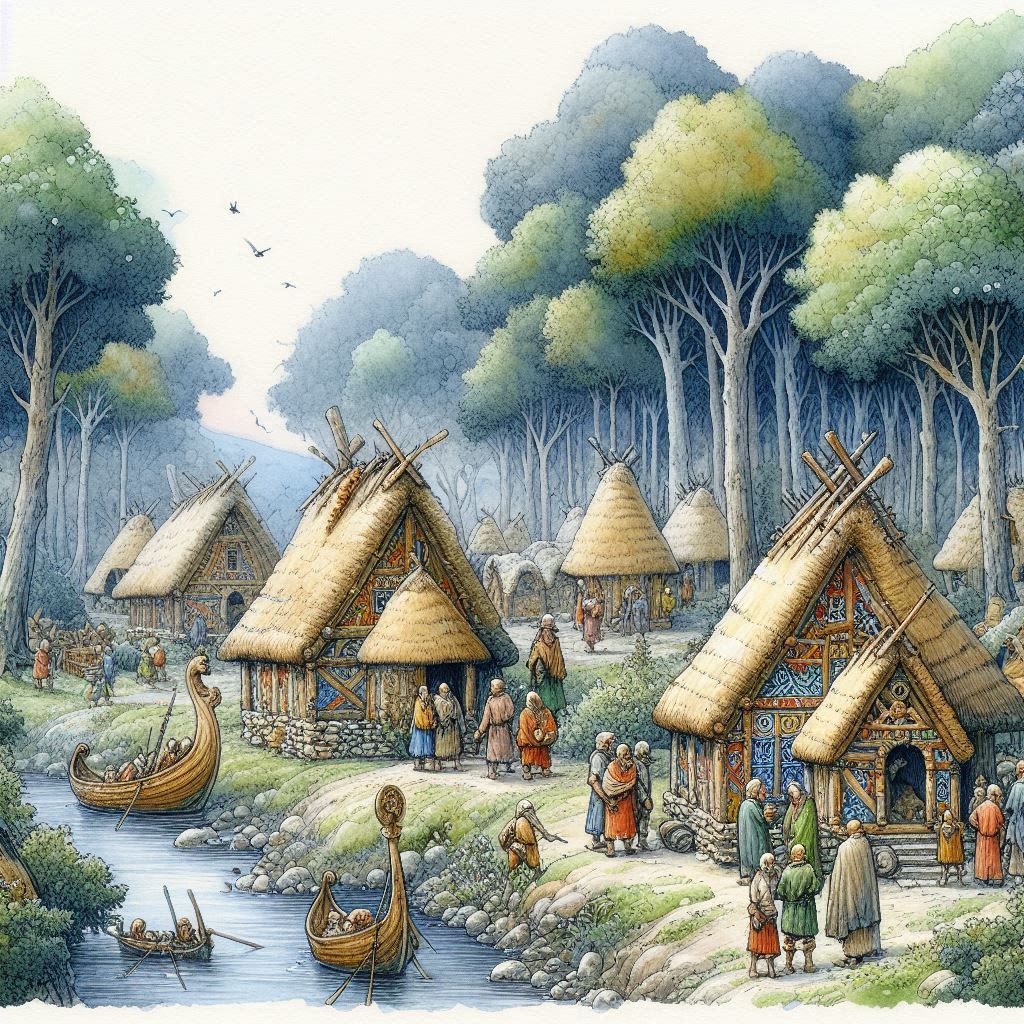
Walders have a long history of isolation, developing unique languages, customs, and traditions. They have tales of ancient forest spirits, guardians, and conflicts with outsiders who sought to exploit their woodland home.
Skjald Kazumix
Cartography
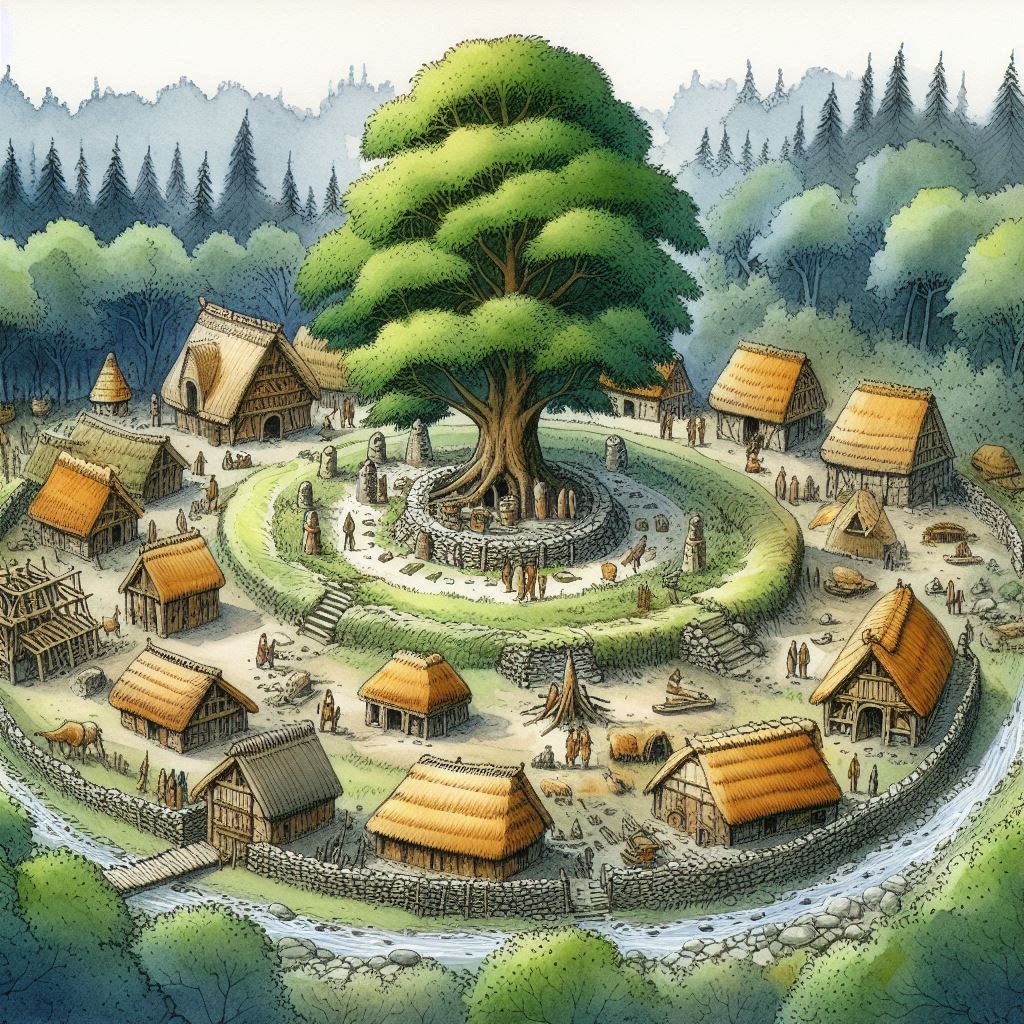
While most Walders are semi-nomadic within their territories, they skilfully navigate the dense woods, setting up temporary camps. The encroachment of other cultures or external threats like logging settlers, hostile creatures, or otherworldly forces introduces challenges to their way of life.
Skjald Valgrif
Organisation
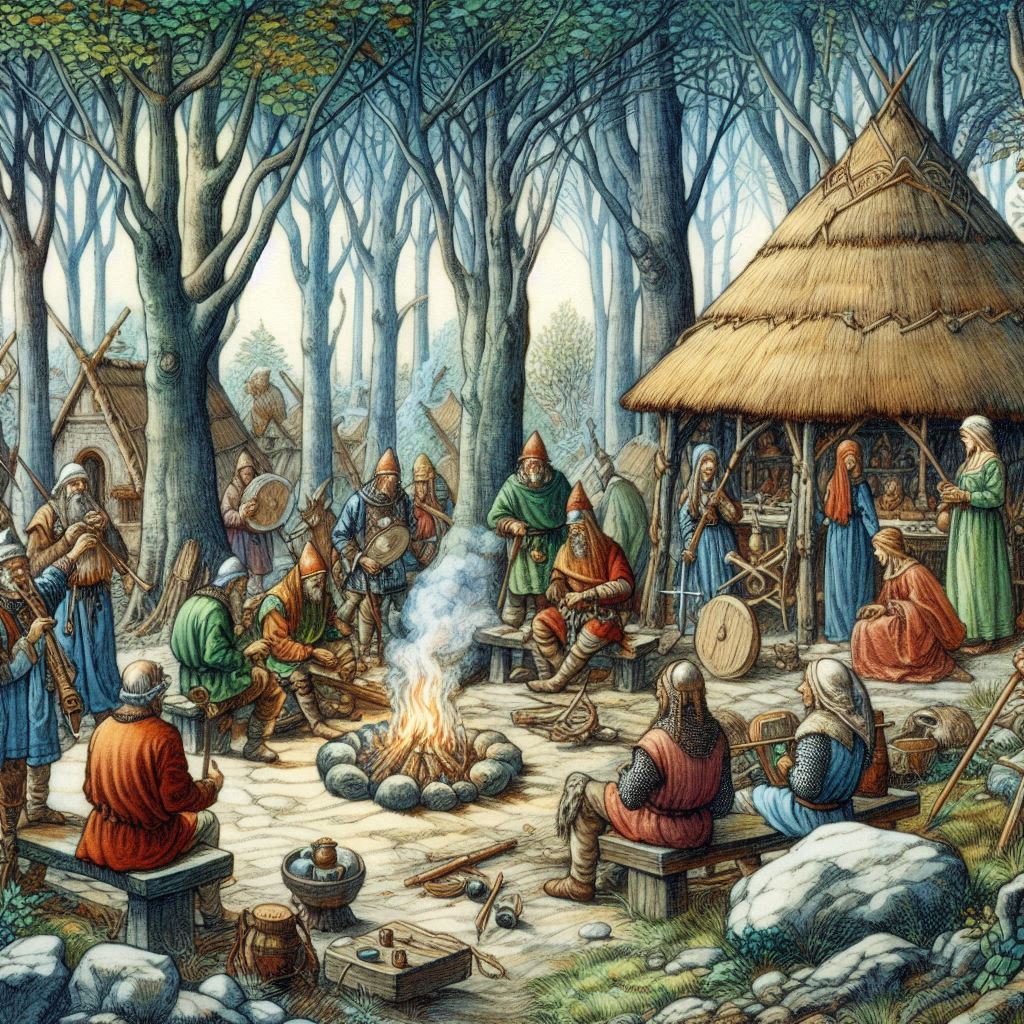
Walder communities are egalitarian, with leadership based on wisdom, skill, or spiritual authority. Decisions are made collectively, and there is a strong sense of communal ownership of the forest. Solitary wise individuals, or sages, offer advice and guidance to those seeking the forest’s blessings.
Skjald Ulrich
Special
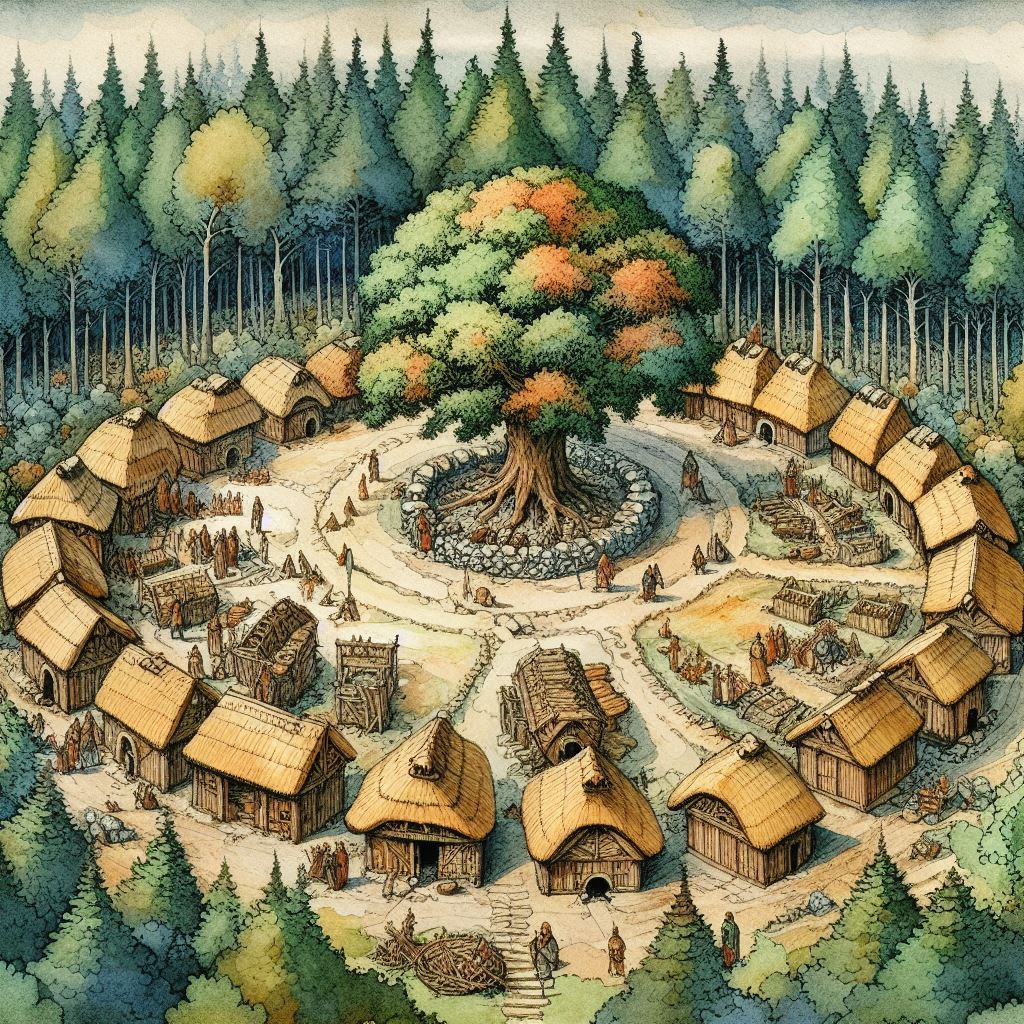
Walders possess extensive knowledge of forest plants, animals, and survival skills. They have unique tracking and hunting abilities and a deep understanding of the forest’s cycles. Their connection to nature spirits or deities is strong, often guiding their actions and decisions.
Skjald Yell'a'Beard
Last Updated on 2024-10-20 by IoM-Christian
